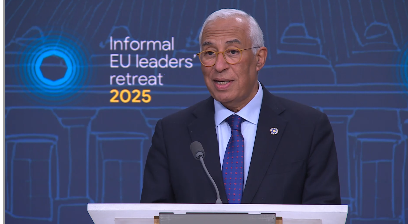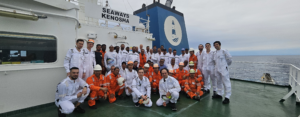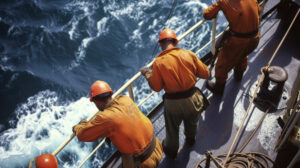
The EU wants to better equip itself for the defense of the future due to the current threat. At an informal EU leaders’ meeting in Brussels on February 3 the leaders discussed key aspects relating to European defence, including the development of collective capabilities, and how best to use the EU budget and mobilise private funding, as well as how to strengthen strategic partnerships.
At the meeting, Finnish prime minister Petteri Orpo gave an opening address on the recent events in the Baltic Sea. Orpo emphasised that although the investigations are still under way, so many cuts to undersea cables cannot be an accident.
“Undersea cables are part of the critical infrastructure of the EU. We have to monitor the cables more closely and improve our capacity to repair them. The Commission’s initiative on protecting undersea cables is very welcome,” said prime minister Orpo.
In the face of security challenges such as Russia’s war against Ukraine, nuclear threats, cyber and hybrid attacks and instability in the Middle East, the EU must strengthen its defence capabilities and strategic autonomy.
The discussions, which continued late into the evening, also focused on EU-US relations, support for Ukraine and defence cooperation with key partners.
At the end of the meeting on Monday morning in Brussels, the President of the European Council, António Costa said that the ongoing war in Ukraine, the cyber and hybrid attacks, and the situation in the Middle East calls for a strong European approach to ensure the security of Europe.
“Defence spending has already increased by 30% between 2021 and 2024. Today, on average, the 23 member states that are also NATO allies are spending about 2% of their GDP on defence. We must continue in the same direction. The Commission announced it would look into the flexibilities within the new economic governance rules, to allow for more national spending on defence,” Costa stressed.
The heads of state and government discussed European defence from a wide range of perspectives, including developing the European defence industry, strengthening the national defence of the Member States, deepening NATO cooperation and mobilising funding for defence.
Finland’s position is that any EU financial assistance should primarily take the form of loans or guarantees.
“Our objective is clear. The EU must remain united and must do much more for common defence and security. One of the key lessons of the war in Ukraine has been that the era of traditional warfare is not over. We also need strong ground combat capabilities,” said Finnish Prime Minister Orpo in Brussels.
“Finland is open to exploring different funding solutions to support Ukraine and strengthen the EU’s comprehensive security. Finland should be a net beneficiary of the solutions. Funding must be targeted at those areas where Europe is being defended,” added Orpo.
Attending the informal #EU leaders‘ meeting on European defence today.
— Alexander Schallenberg (@a_schallenberg) February 3, 2025
We have to cooperate even closer in order to become more resilient, more efficient and more autonomous regarding the threats #Europe is facing. However, there can be no „one size fits all“ approach. #EUCO pic.twitter.com/8vn0MeR6FV
Based on the leaders’ advice, the Commission and EU High Representative Kaja Kallas are drawing up a White Paper on European Security, which is due to be published in March. The EU leaders will continue their discussion on defence at the June European Council.
“We need European efforts to mobilise more private and public investments. To improve access to private financing, the European Investment Bank has already expanded its activities in support of the security and defence industry. And more can be done. As for public funds, defence will be an important topic in the discussions on the next EU budget cycle as of 2028. But it is clear to everyone that we need to act faster than that,” the President of the European Council Costa noted.


